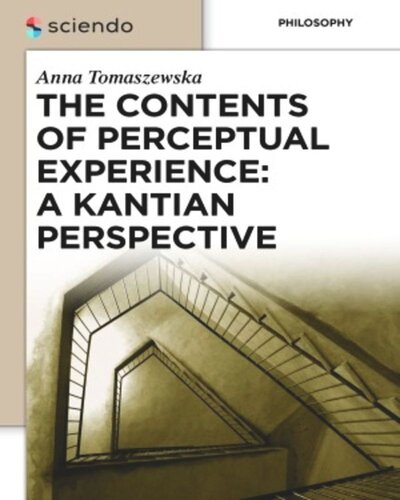

Most ebook files are in PDF format, so you can easily read them using various software such as Foxit Reader or directly on the Google Chrome browser.
Some ebook files are released by publishers in other formats such as .awz, .mobi, .epub, .fb2, etc. You may need to install specific software to read these formats on mobile/PC, such as Calibre.
Please read the tutorial at this link: https://ebookbell.com/faq
We offer FREE conversion to the popular formats you request; however, this may take some time. Therefore, right after payment, please email us, and we will try to provide the service as quickly as possible.
For some exceptional file formats or broken links (if any), please refrain from opening any disputes. Instead, email us first, and we will try to assist within a maximum of 6 hours.
EbookBell Team

4.4
52 reviewsThe book addresses the debate on whether the representational content of perceptual experience is conceptual or non-conceptual, by bringing out the points of comparison between Kant’s conception of intuition and the contemporary accounts of non-conceptual content, encountered in the writings of G. Evans, Ch. Peacocke, F. Dretske, T. Crane, M. G. F. Martin, and others. Following R. Aquila’s reading of Kant’s conception of representation, the author argues that intuition (Anschauung, intuitus) provides the most basic form of intentionality – pre-conceptual reference to objects, which underlies the acts of conceptualization and judgment.
The book advances an interpretation of Kant’s theory of experience in the light of such questions as: Does conscious perceptual experience of objects require that subjects possess concepts of these objects? Do the contents of experience differ from the contents of beliefs or judgments? And if they do, what accounts for this difference? These questions take us to the most puzzling philosophical topic of the relation between mind and world. Anna Tomaszewska argues that this relation does not involve conceptual capacities alone but also, on the most basic level of perceptual experience, pre-cognitive “sensible intuition,” enabling relatedness to objects that remains uninformed by concepts. In a nutshell, on her interpretation, Kant can be taken to subscribe to the view that perceptual cognition does not have rational underpinnings.
Kantian Debate, Monograph, Philosophy of Mind